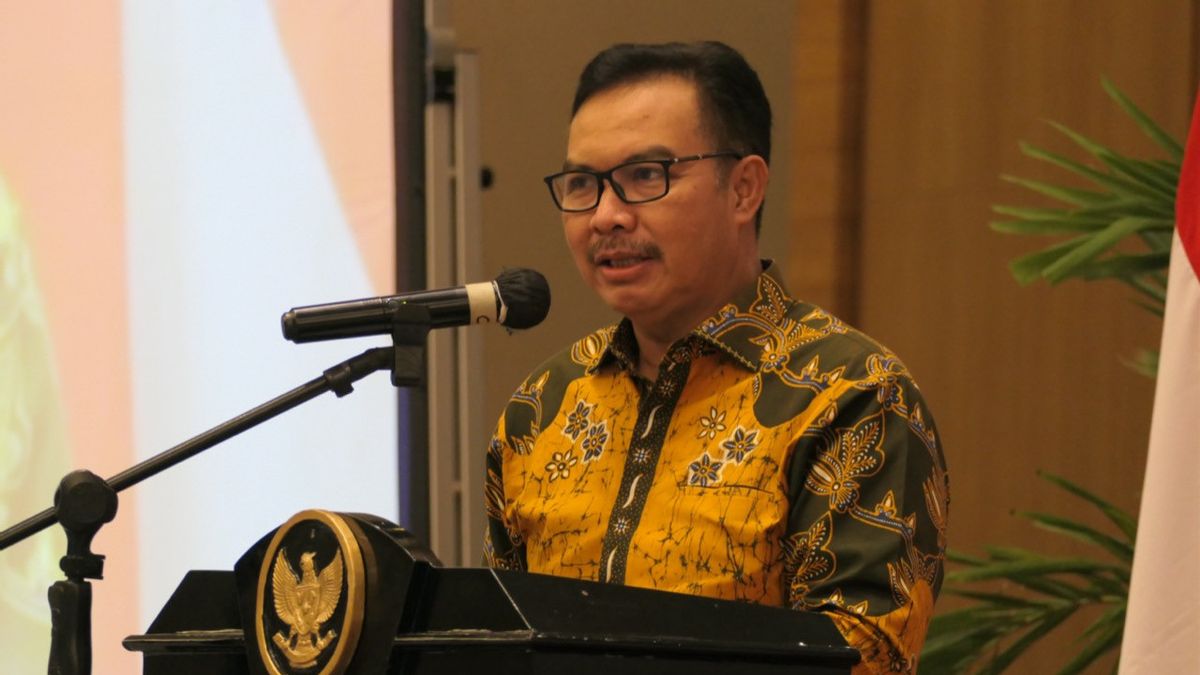SURABAYA - The tendency to decrease the stunting rate nationally to 24.4 percent in 2021 after previously touching 27.7 percent in 2019 is something to be grateful for in the midst of the ongoing Covid-19 pandemic.
Hopefully, in the year. In 2023, the trend of decreasing the stunting rate could be at 16 percent and finally in 2024 it could decrease again to 14 percent. The national target for stunting is not only the target and aspiration of President Joko Widodo, but also the determination of all stakeholders, including in East Java.
What about stunting conditions in East Java? East Java is one of the 12 priority provinces that have the highest prevalence of stunting in the country in 2022. The "homework or homework" for East Java based on the 2021 Indonesian Nutrition Status Study (SSGI) is the presence of four districts in the "red" category. The four are Bangkalan, Pamekasan, Bondowoso and Lumajang. Pinning this red status because the prevalence is above 30 percent.
18 districts and cities with "yellow" status with a prevalence of 20 to 30 percent, including Sumenep, Surabaya City, Malang Regency, Malang City and Nganjuk
Meanwhile, 15 districts are categorized as green with a prevalence of 10 to 20 percent, such as; Ponorogo, Probolinggo Regency, Trenggalek, and Batu City.

There is only one area with blue status, namely Mojokerto City with a prevalence below 10 percent, to be exact 6.9 percent.
“East Java will become a major contributor to the reduction in stunting nationally if all parties are determined and work together to overcome the problems that we still encounter in our environment. I believe East Java can do it because the central government is seriously dealing with stunting issues from the upstream to downstream sectors. We must move the role of local governments, starting from the provincial, district and city, sub-district, sub-district to village levels to reduce stunting rates in the community," explained the Head of the National Population and Family Planning Agency (BKKBN) Dr (HC) dr. Hasto Wardoyo, Sp.OG (K).
To further strengthen coordination and understanding on mechanisms for working procedures, monitoring, reporting, evaluation and scenarios for stunting funding in the regions, the BKKBN, which was assigned by President Jokowi as the "controller" for stunting prevention in the country, held a socialization of the National Action Plan for the Acceleration of Stunting Reduction in Indonesia (RAN PASTI). ) in Surabaya today (Wednesday, March 2, 2022).
The BKKBN with 200,000 Family Assistance Teams consisting of midwives, PKK and family planning cadres or other development cadres are already in the village. Thus this number is equivalent to 600,000 people. They will be trained and accompanied by prospective brides/couple of fertile age, pregnant women, mothers during pregnancy intervals, and children aged 0 - 59 months.
The socialization of RAN PASTI is important considering that the BKKBN is finalizing the RAN PASTI with a stunting-risk family approach. The role of Family Assistance Teams in the regions is so important because they are at the forefront. RAN PASTI becomes a reference in the implementation of accelerated stunting reduction for ministries and institutions, Provincial Governments, Regency/City Governments, Village Governments, and other stakeholders
This socialization event is strategic. The stunting reduction indicator will be one of the parameters for the success of regional heads in the welfare of their citizens and spurring regional development progress, considering that the BKKBN is finalizing the RAN PASTI with a stunting-risk family approach. The role of Family Assistance Teams in the regions is so important because they are at the forefront. RAN PASTI becomes a reference in the implementation of accelerated stunting reduction for ministries and institutions, Provincial Governments, Regency/City Governments, Village Governments, and other stakeholders.

The socialization of RAN PASTI presented the Head of the BKKBN as the Head of the Central Stunting Reduction Acceleration Team (TPPS) as well as the deputy chairmen from the elements of the Vice President's Secretariat, the Coordinating Minister for Human Development and Culture of Bappenas, the Ministry of Home Affairs, and the Ministry of Health.
Regarding the government's plan to make stunting reduction indicators as one of the parameters for the success of regional heads in the welfare of their citizens, Trenggalek Regent Mochamad Nur Arifin welcomed this positively. "Whether there is an award or not, it is the main task of the regional head to always care about populist issues, including the reduction of stunting. We in Trenggalek continue to be determined to reduce the stunting rate.
Trenggalek's position in the green category at 18.1 percent and ranks 212 out of 246 regencies/cities that have a high prevalence is a motivation for us to continue working for the community," said Gus Ipin, the nickname of the Trenggalek Regent.
The English, Chinese, Japanese, Arabic, and French versions are automatically generated by the AI. So there may still be inaccuracies in translating, please always see Indonesian as our main language. (system supported by DigitalSiber.id)













